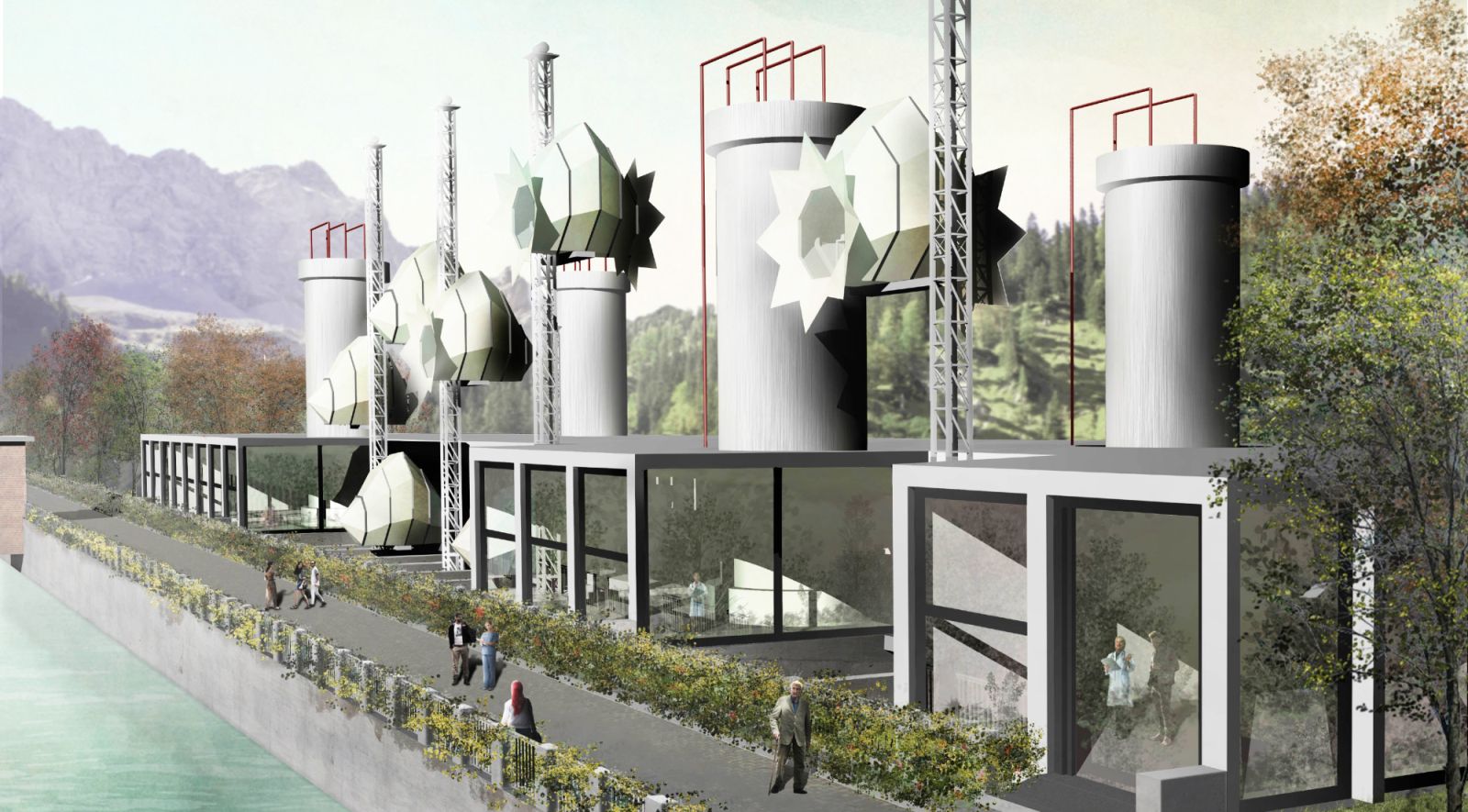This project aims to reformulate and rethink the phenomenon of medicalization and how to apply it from a less institutionalized point of view. Rethinking the model and health strategies, it tries to encourage the individual to take power over its own body and be aware of its actual state in order to manage self-care, using the resources at its disposal.
The proposal focuses on the region of Marina Baixa, in Alicante, whose municipalities are linked traditionally affective, socially and economically. These shared bonds define a territorial ecosystem that allows creating a strategy for a disperse-cares infrastructure. Once that the work has been contextualized, we present the methodological process divided in three parts.
The first part, Setting/Justification, puts us in a medical and health context that provides a solid foundation for the development of the project. Ivan Illich predicts that medicine has overflowed tolerable limits, in a process that medicalizes life to such an extent that all problems are consulted, which is called expropriation of health. Points to ‘medical establishment’ as guilty of institutionalization of society, and accuses them of submitting to the financial and political powers.
Michel Foucault agrees with tis idea in his analysis of power. He insists that this phenomenon allowed the development of new technologies of intervention and social control. Besides, we use imaginary based on cinema, television and health architecture. In the second part, Area, we generate our own geographical document where resources operating on the territory are mapped, distinguishing between physical, social, medical and environmental.
This compilation, that allows us to build a distributed care network, explores the field of health keeping in mind the tourist potential of Marina Baixa. We have distributed ten sites where locate specialized treatment stations, according to the adequacy of its resources. In the third part, Proposal, three or the ten intervention possibilities outlined in the previous section are developed here: Hemodialysis, Genetics selection and Maternity.
The reason of the election of these interventions lies in the regional relevance of their locations. The interventions are based on the premise that the participation of architecture in the therapeutic process is transcendental. This healing process allows the individual to take control of its own body. To this end, a study of the steps required for each treatment is performed. We make a proposal in which each architectural element assumes the role of one of these phases, in order to visualize the process.
Moreover, associations, citizen groups and doctors or health professionals outside conventional medicine are involved in these proposals. An Hemodialysis’ Station arises attached to the dam reservoir Guadalest. The architecture itself becomes the dialysis machine. Each element has a role in the process of blood purification: extraction, circulation pump, heparin injection, air purge, dialysis and return. The trigger is water, which activates turbines pumping the patient’s blood.
The second is a Clinical of Genetics’ Selection, from the technique of in vitro. It is housed in the bounded area of Air Surveillance Squadron nº5, at the top of Aitana Mountain. While for many it is a medical breakthrough, it has sectors opposed by an ethical conflict, considering it an eugenic and immoral art. The military base, in his turn, generates controversy because of being object of manifestations of environmental groups and anti-militarists.
The proposal, which is presented as a route, takes advantage of the facility to incorporate the necessary elements to the stage where you are: obtaining genetic material, transportation of material, vitrification of samples, fertilization, cultivation, preimplantation genetic diagnosis, genetic modification, embryo transfer and cryopreservation. The third and last proposal raises specialized facilities in the process of Maternity in the area of Molí de Baix, in Sella.
This location was chosen for its connection with water and its symbolism as creative element of life. Devices to enjoy motherhood as an alternative, internalized and different experience arise, setting this process away from the patriarchal assumption as painful and controlled process. Each of them plays a role: medical examination, relaxation-breathing techniques, release of oxytocin, childbirth, establishment of mother-child bond, breastfeeding and parenting, and sex postpartum. Source by José Miguel Asencio.
- Location: Marina Baixa, Alicante, Spain
- Student: Beatriz Antón Urrios , José Miguel Asencio Asencio
- Tutor: Miguel Mesa del Castillo , Vicente Iborra
- University: Escuela Politécnica Superior
- Year: 2016
- Images: Courtesy of José Miguel Asencio
